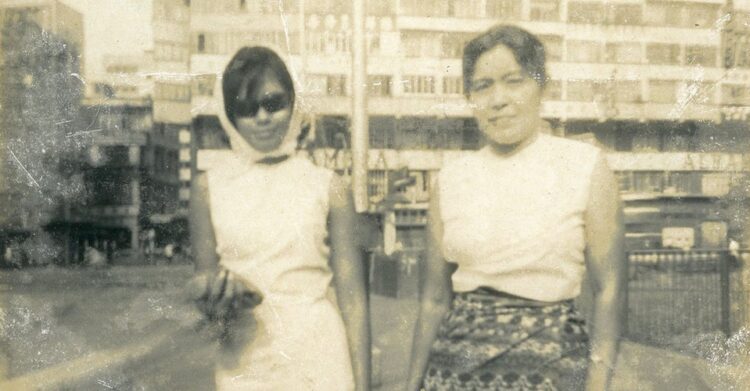[ad_1]
In Mandalay, The New York Instances reported, Daw Htay Shwe, a restaurant proprietor, mentioned she had written her will earlier than becoming a member of a rally on the prepare station. “I’ll shield our nation’s democracy with my life,” she mentioned.
Growing up, my grandmother would all the time inform my father, a white Irish Luxembourgian third-generation American from northeastern Iowa, that there was a particular kinship between their folks. “Don’t you realize, Carl? The Burmese are often known as the Irish of the East,” she would say, “as a result of we’re all the time smiling and laughing!” This notion—that we have been a jolly Asian folks, unperturbed by the difficulties of life—all the time caught with me as a kind of perverted badge of honor, the fortunate little Southeast Asian leprechauns residing on the finish of a colonial rainbow.
Myanmar at this time is riddled with racism, and the Burmese haven’t solely accepted however supported the genocide of their nation’s Muslim Rohingya minority. It’s a ethical stain that underscores the magnitude of the work forward. However this second suggests that a new technology of leaders and advocates is prepared to look into the darkness, unflinching, to search out the sunshine. At this time, studying the tales of my long-distance compatriots, prepared to put down their lives within the pursuit of democracy, I discover it clear that this technology of Burmese has created an id for itself that rejects the preposterous, embarrassing stereotypes of the previous. The kinship they really feel shouldn’t be with those that search to please, however with those that are prepared to battle.
Morgan Ome: Why this wave of anti-Asian racism feels different
When my mom lastly arrived in America within the late 1960s, she attended Swarthmore School and majored in political science. She was enrolled underneath her actual identify, Tin Swe Thant; the identify “Maureen” is nowhere in her college transcripts. Within the heady days of 1970s American counterculture, she started to put on bell-bottoms, and she or he customary herself a Marxist.
However by the point the ’80s got here round, she had turned to energy fits and leisure jogging. She was nonetheless Burmese, nonetheless Asian, however that a part of her id—apart from cooking—appeared to have atrophied. Maybe this was due to immigration, and what the obscure however highly effective forces of American assimilation appeared to require. Or maybe it was as a result of Asian tradition—and Burmese tradition—dictated modesty, lodging, calm, obeisance. Pushing too aggressively in opposition to the grain, no matter it was, shouldn’t be what she had been taught.
I didn’t actually suppose too exhausting about this till a second final summer season when my mom, now a septuagenarian retiree residing in a small city on Lengthy Island, texted me a few native Black Lives Matter protest occurring that weekend. She was going. Was I?
I marveled, in that second, on the intersectionality of the entire thing—a Burmese exile in New York in search of racial justice within the aftermath of the homicide of George Floyd in Minnesota. However her textual content was equally indicative of one thing else: My Asian mom was paying consideration, and she or he was going to place up a battle.
[ad_2]
Source link

